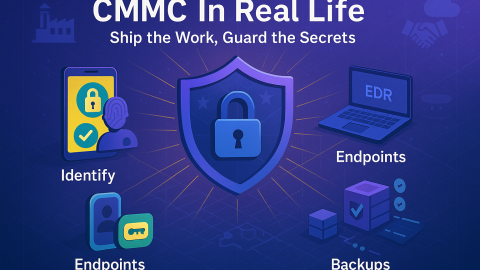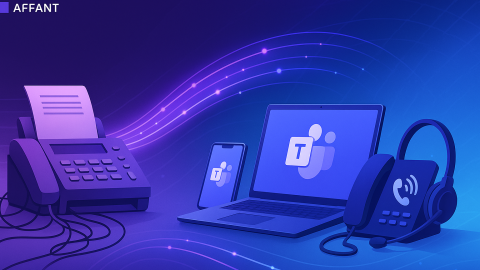Running a small business is no small feat. You wear multiple hats—overseeing daily operations, managing finances, and strategizing for growth. In this busy landscape, technology can be a driving force that propels your business forward or a stumbling block that holds you back. That’s why selecting the right IT service provider is crucial. The ideal partner will not only implement effective solutions but also provide ongoing support to keep your systems secure and efficient. Below, we’ll cover key factors to consider when evaluating potential IT service providers, ensuring that you make a choice that aligns with your operational needs and long-term goals.
1. Assess Their Local Expertise
Although the world is increasingly connected and remote services are more accessible than ever, local expertise still offers significant advantages for many small businesses. Having an IT provider located in your region can mean faster on-site support when emergencies arise, as well as a deeper understanding of local market nuances.
- Rapid Response Times: Proximity often translates to quicker response and resolution times, whether you need hardware repairs or face a major network outage.
- On-Site Assistance: While remote troubleshooting is effective for many issues, some problems—like equipment installation or complex network configurations—can be more efficiently addressed in person.
- Local Market Insight: A provider familiar with your region may offer specialized recommendations or industry connections relevant to your specific area or customer base.
If you find yourself constantly juggling pressing IT demands, having a partner who can be on-premise at short notice can be invaluable. Even if your needs are primarily remote, the peace of mind that comes with local availability can make a tangible difference in your day-to-day operations.
2. Gauge Their Experience and Range of Services
It’s not uncommon for small businesses to have broad yet evolving IT requirements. From managed network security and data backup to cloud migration and hardware support, a robust service portfolio is a strong indicator of a provider’s experience and adaptability.
- Industry-Specific Expertise: Look for evidence that they have supported businesses similar to yours. Past experience in your sector can provide insights into best practices and potential pitfalls.
- Certified Staff: Certifications from reputable tech organizations or vendors (Microsoft, Cisco, CompTIA) signal that a provider’s team keeps their knowledge current and has met industry standards of expertise.
- Proven Track Record: Don’t hesitate to ask for case studies or client testimonials. Hearing how they’ve tackled challenges for other small businesses can help you gauge the provider’s effectiveness in real-world scenarios.
Remember, technology isn’t static—it evolves quickly. The right partner should be agile, continuously learning, and capable of guiding your business through software updates, infrastructure changes, and emerging solutions.
3. Prioritize a Customer-Centric Approach
While technical know-how is essential, customer service can be just as crucial in determining a long-term fit with an IT service provider. A team that cares about your success will not only keep your systems running but also offer guidance and recommendations tailored to your specific business goals.
- Clear Communication: Look for providers who explain technical issues and solutions in plain language. You should feel confident that you understand both your problems and the recommended fixes.
- Proactive Solutions: A good IT partner will monitor your systems and identify potential risks or performance bottlenecks before they escalate into major disruptions. This proactive approach can save you time, money, and headaches.
- Dedicated Support Channels: Evaluate how accessible the support team is—do they offer 24/7 phone or chat availability? How quickly do they typically respond to tickets or inquiries? Consistent, responsive communication is a major factor in keeping your business operations seamless.
When providers invest in solid customer relationships, the partnership becomes a genuine collaboration. Rather than merely troubleshooting glitches as they arise, a dedicated IT service team works with you to anticipate future challenges and propose improvements that align with your evolving business needs.
4. Review Their Security Measures and Compliance Knowledge
In today’s environment, data protection is paramount. From credit card information to confidential client details, every small business handles some form of sensitive data—and cybercriminals are increasingly targeting smaller organizations that might lack robust defenses. That’s why evaluating security measures and compliance expertise should be a core part of your selection process.
- Proactive Cybersecurity Strategy: Ask potential providers about the security frameworks they use to protect data and systems, including firewalls, intrusion detection, and encrypted backups.
- Regulatory Compliance: Certain industries—like healthcare, finance, or e-commerce—have strict regulations (HIPAA, PCI-DSS, GDPR). Make sure your prospective provider fully understands and can help you remain compliant with the relevant standards.
- Disaster Recovery and Backup Plans: Even the most secure systems can be compromised by unforeseen events or natural disasters. Your IT partner should have robust backup strategies and recovery protocols to get your business back online quickly if the worst happens.
Putting security at the forefront not only safeguards your critical data but also fosters trust among your customers and partners.
5. Evaluate Their Scalability and Future-Readiness
Technology needs evolve alongside your business. What works well today may need an upgrade or an entirely new solution tomorrow—particularly if you’re anticipating growth in workforce size, product offerings, or service areas. Selecting an IT service provider who can scale with you is crucial for maintaining continuity and avoiding disruptive transitions.
- Flexible Service Plans: Seek out providers who offer tiered packages or customizable solutions that can adapt as your business changes. This helps you avoid paying for capabilities you don’t need while ensuring you can ramp up resources when necessary.
- Emphasis on Innovation: Look for providers who keep pace with emerging technologies. Their capacity to implement advanced solutions—like cloud computing, AI-driven analytics, or secure remote work infrastructures—can give your small business a competitive edge.
- Long-Term Partnership Mindset: An IT provider focused on building lasting relationships is more likely to invest in your long-term success. They’ll stay in step with your strategic objectives and recommend appropriate technologies to support your growth.
Scalability isn’t just about adding more servers or storage space—it’s about aligning technology choices with your trajectory so your business can seamlessly handle increased workloads and new demands.
6. Consider Cost-Effectiveness and Contract Terms
Finally, cost remains a significant deciding factor, especially for small businesses operating with limited budgets. However, keep in mind that the cheapest option isn’t always the most cost-effective in the long run.
- Transparent Pricing: Reputable providers will walk you through their pricing models—whether it’s hourly rates, monthly retainers, or project-based fees—and clarify what each package includes.
- Service Level Agreements (SLAs): Review any SLA carefully to understand response times, support boundaries, and liability clauses. A balanced contract can offer protection and peace of mind if service expectations aren’t met.
- Value Assessment: Compare the services and expertise you receive against the total cost. Sometimes, a slightly higher fee is justified if the provider offers significant added value in terms of security, expert advice, or extended support hours.
When evaluating costs, consider the potential negative consequences of unreliable IT support—such as prolonged downtime, data breaches, and lost opportunities. Investing in a reliable IT partner can translate into long-term savings and a smoother path to business growth.
Making the Right Decision for Your Small Business
Selecting an IT service provider is a strategic decision that can shape the future trajectory of your small business. Look for providers who demonstrate not only technical proficiency but also a genuine commitment to your success. By focusing on local expertise, extensive experience, top-notch customer service, robust security measures, scalability, and fair pricing, you’ll be well-positioned to forge a partnership that adds tangible value to your operations.
Don’t be afraid to ask tough questions or request references—after all, your IT partner will play a pivotal role in safeguarding your data, streamlining daily tasks, and steering you through periods of technological change. Invest the time in finding a team that understands your vision, and you’ll gain a trusted ally capable of guiding your business toward long-term growth and resilience.











